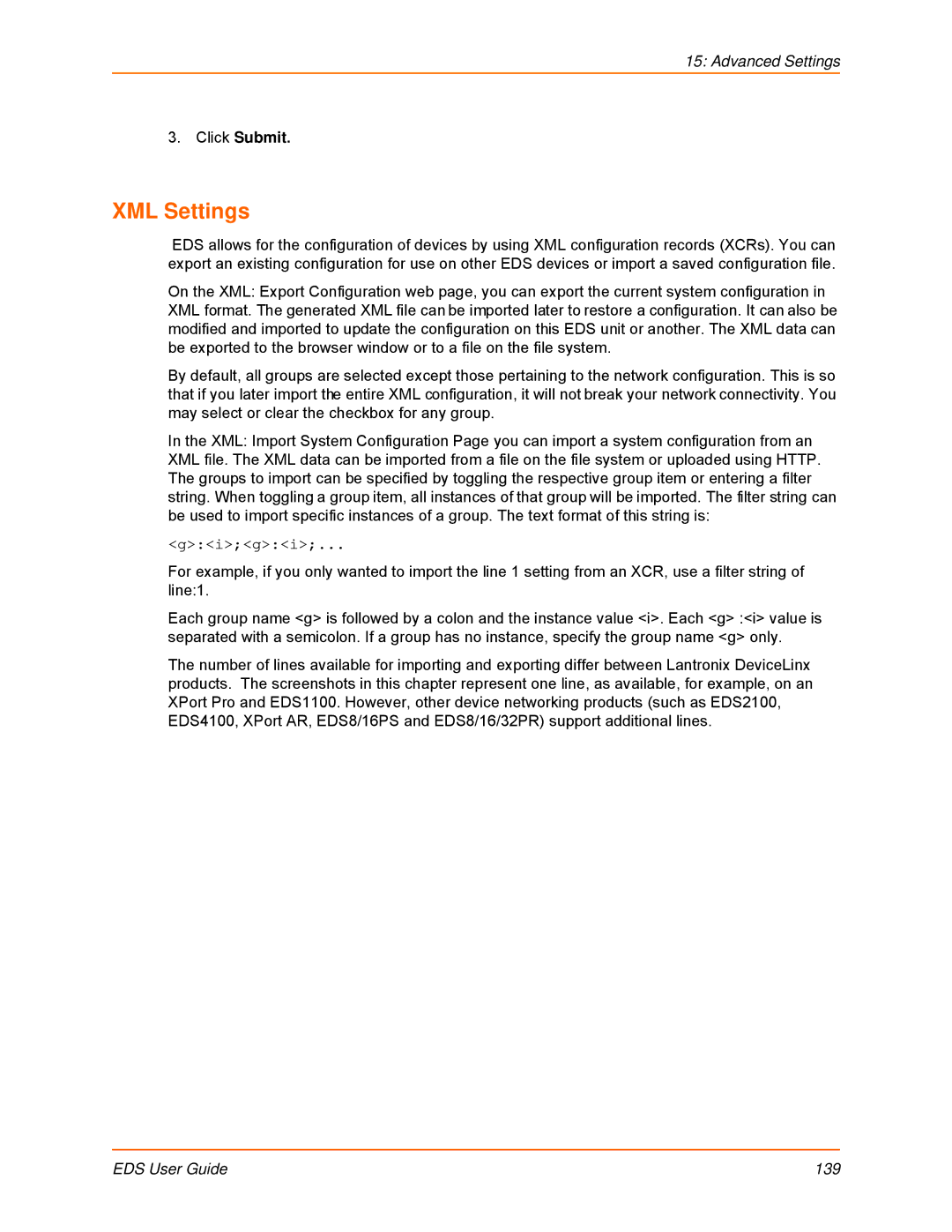
15: Advanced Settings
3.Click Submit.
XML Settings
EDS allows for the configuration of devices by using XML configuration records (XCRs). You can export an existing configuration for use on other EDS devices or import a saved configuration file.
On the XML: Export Configuration web page, you can export the current system configuration in XML format. The generated XML file can be imported later to restore a configuration. It can also be modified and imported to update the configuration on this EDS unit or another. The XML data can be exported to the browser window or to a file on the file system.
By default, all groups are selected except those pertaining to the network configuration. This is so that if you later import the entire XML configuration, it will not break your network connectivity. You may select or clear the checkbox for any group.
In the XML: Import System Configuration Page you can import a system configuration from an XML file. The XML data can be imported from a file on the file system or uploaded using HTTP. The groups to import can be specified by toggling the respective group item or entering a filter string. When toggling a group item, all instances of that group will be imported. The filter string can be used to import specific instances of a group. The text format of this string is:
<g>:<i>;<g>:<i>;...
For example, if you only wanted to import the line 1 setting from an XCR, use a filter string of line:1.
Each group name <g> is followed by a colon and the instance value <i>. Each <g> :<i> value is separated with a semicolon. If a group has no instance, specify the group name <g> only.
The number of lines available for importing and exporting differ between Lantronix DeviceLinx products. The screenshots in this chapter represent one line, as available, for example, on an XPort Pro and EDS1100. However, other device networking products (such as EDS2100, EDS4100, XPort AR, EDS8/16PS and EDS8/16/32PR) support additional lines.
EDS User Guide | 139 |
